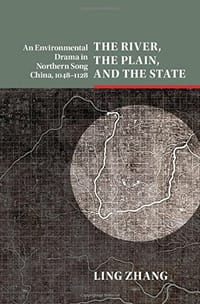On July 19, 1048, the Yellow River breached its banks, drastically changing its course across the Hebei Plain and turning it into a delta where the river sought a path out to the ocean. This dramatic shift of forces in the natural world resulted from political deliberation and hydraulic engineering of the imperial state of the Northern Song Dynasty. It created 80 years of social suffering, economic downturn, political upheaval, and environmental changes, which reshaped the medieval North China Plain and challenged the state. Ling Zhang deftly applies textual analysis, theoretical provocation, and modern scientific data in her gripping analysis of how these momentous events altered China's physical and political landscapes and how its human communities adapted and survived. In so doing, she opens up an exciting new field of research by wedding environmental, political, economic, and social history in her examination of one of North China's most significant environmental changes.
Ling Zhang is an Assistant Professor of History at Boston College, Massachusetts. She was a Ziff Environmental Fellow at the Center for the Environment at Harvard University, Massachusetts and a postdoctoral fellow in the Program of Agrarian Studies at Yale University, Connecticut. She is currently working on a book project entitled China's Sorrow or the Yellow River's Sorrow: ...
显示全部

